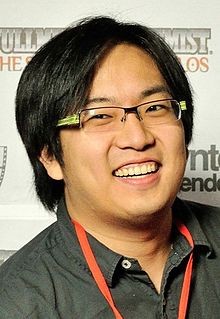A Quote by Gabe Newell
It feels a little bit funny coming here and telling you guys that Linux and open source are the future of gaming. It's sort of like going to Rome and teaching Catholicism to the pope.
Related Quotes
Now the ordinary Protestant, Jew or Secularist has a stereotype about Catholicism. It consists of Spanish Catholicism, Latin-American Catholicism and, let us say, a Catholicism of O'Connor's "Great Hurrah." Now there are types of Catholicism like that but this doesn't - this doesn't do justice to the genuine relation that Catholicism has had to Democratic Society.
Gaming has kind of evolved a bit. More people play on portable devices. Where we might go in the future, we'll see. Customers love games. I'm not interested in being in the console business in what is thought of as traditional gaming. But Apple is a big player today and things in the future will only make that bigger.
I find with most of my readers are kind of like me, sort of people who were a little bit naive in life and then learned the hard way that this is what's going on, the political games and most of my readers write to me telling me that the book helped them open their eyes to what other people are doing to them.
Catholicism is not ritualism; it may in the future be fighting some sort of superstitious and idolatrous exaggeration of ritual. Catholicism is not asceticism; it has again and again in the past repressed fanatical and cruel exaggerations of asceticism. Catholicism is not mere mysticism; it is even now defending human reason against the mere mysticism of the Pragmatists.
If an open source product gets good enough, we'll simply take it. So the great thing about open source is nobody owns it - a company like Oracle is free to take it for nothing, include it in our products and charge for support, and that's what we'll do. So it is not disruptive at all - you have to find places to add value. Once open source gets good enough, competing with it would be insane. We don't have to fight open source, we have to exploit open source.


































